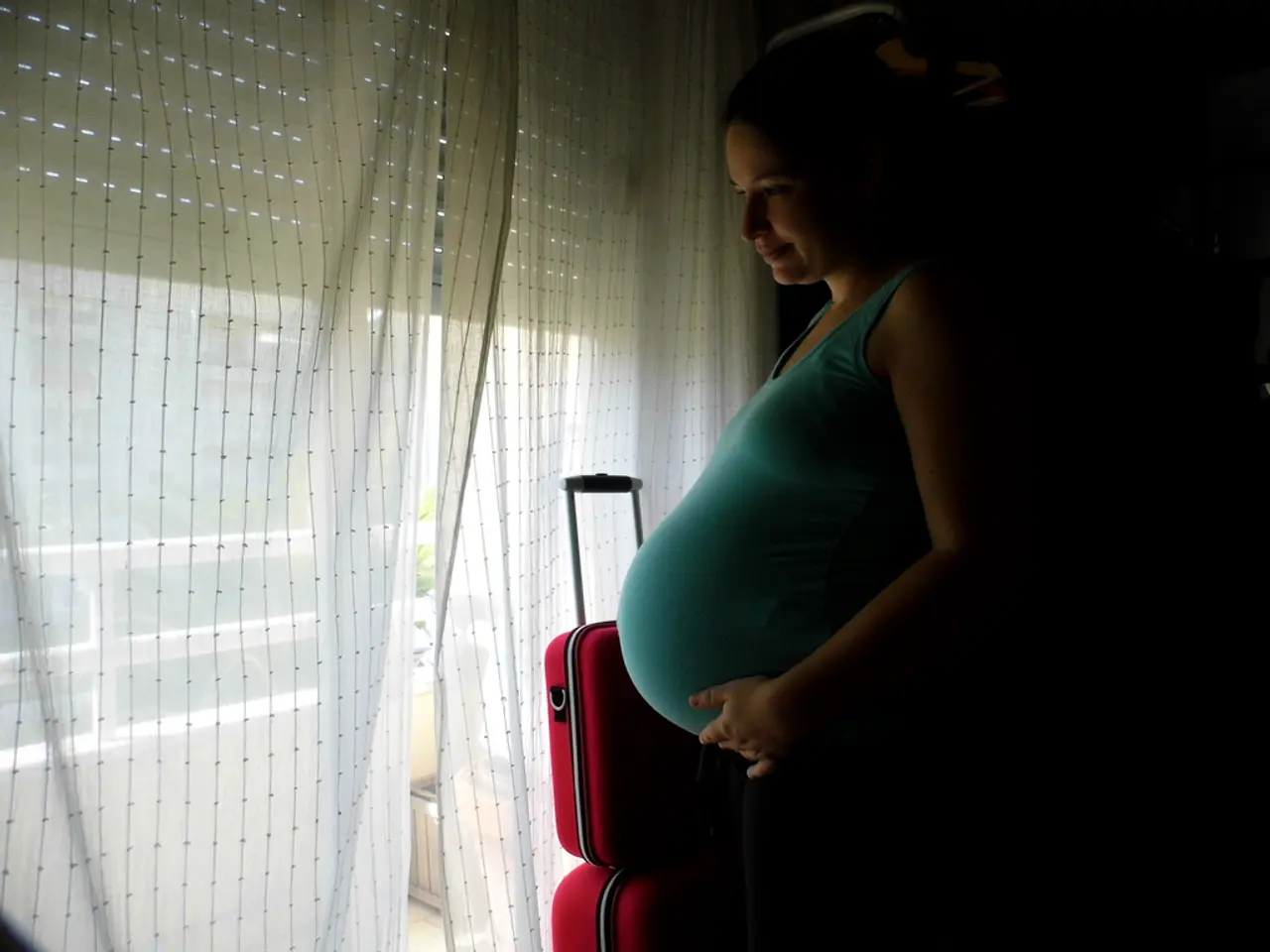Complications During Pregnancy: Exploring Symptoms, Remedies, and Personal Care Strategies
Pregnancy is a beautiful and transformative journey, but it can also come with its fair share of challenges. It's essential for expectant mothers to be aware of potential complications and take necessary steps to ensure a healthy pregnancy.
One such complication is preeclampsia, characterised by high blood pressure, changes in vision, severe headache, pain underneath the ribs, difficulty breathing, and swelling. Mental health conditions such as depression and anxiety may also occur during pregnancy, with symptoms including low or sad mood, loss of interest in enjoyable activities, change in energy, appetite, or sleep, difficulty concentrating or making decisions, feeling shame, guilt, or worthlessness, thoughts that life is not worth living, persisting for more than 2 weeks.
High blood pressure, if poorly controlled before or during pregnancy, can lead to complications. Mild anemia, a condition characterised by feeling tired, feeling faint, shortness of breath, and rapid heartbeat, is quite common in pregnancy but requires treatment. Hyperemesis gravidarum, persistent and severe nausea and vomiting during pregnancy, can cause weight loss and dehydration.
HELLP syndrome is a rare but serious complication of hypertensive disorders during pregnancy. Symptoms include bleeding and clotting problems, pulmonary edema, kidney failure, liver failure, placental abruption, and seizures. Placental abruption occurs when the placenta becomes separated from the uterine wall before delivery, potentially depriving the fetus of oxygen.
Pregnancy loss can occur for various reasons and is the unexpected loss of the fetus before term. Symptoms include fluid or tissue from the vagina, cramping in the lower abdomen, lower back pain, and vaginal bleeding or spotting.
Mild anemia can be prevented with a doctor's recommendation for prenatal vitamins or iron supplements. A healthy diet and regular exercise can help control gestational diabetes. Some people may need medication or insulin to help control blood sugar.
Self-care tips during pregnancy include taking breaks to sit down and rest, regular, low-impact exercise such as walking and swimming, taking time outdoors in the fresh air, making time for relaxing activities, asking for and accepting help with everyday tasks, prepacking a hospital bag in preparation.
Preterm labor, occurring before 37 weeks of pregnancy, can be prevented by attending all prenatal checkups and keeping healthcare professionals up to date with symptoms. Breech, a condition where the fetus is facing feet or buttocks first before delivery, may require a doctor to use a technique called external cephalic version (ECV) to turn the fetus around manually.
Several health conditions and behaviors can increase the risk of pregnancy complications. These include obesity, pregnancy-induced hypertension and preeclampsia, gestational diabetes, Rh incompatibility, smoking, alcohol consumption, use of illegal drugs, and certain food exposures.
Recognising and managing these conditions and behaviors with healthcare providers is essential to reduce complications. Treatment for postpartum depression includes therapy and medication.
In conclusion, being informed and proactive is key to a healthy pregnancy. Attending all prenatal checkups, maintaining a healthy lifestyle, and communicating openly with healthcare providers can help lower the risk of pregnancy complications. If you experience any unusual symptoms during pregnancy, seek medical advice immediately.
Preeclampsia, characterized by high blood pressure and other symptoms, is a potential complication during pregnancy. Mental health conditions such as depression and anxiety may also arise, causing low mood, loss of interest, and difficulty concentrating.
Gestational diabetes can develop during pregnancy and require medication or insulin to control blood sugar levels. Mild anemia, feeling tired and requiring treatment, is quite common.
HELLP syndrome, a rare but serious complication, involves bleeding, clotting problems, and organ failure. Placental abruption, potentially depriving the fetus of oxygen, can occur when the placenta separates from the uterine wall.
Pregnancy loss can happen for various reasons and presents symptoms like fluid or tissue from the vagina, cramping, and bleeding. Preterm labor, before 37 weeks, can be prevented by attending all prenatal checkups and keeping healthcare providers updated.
Several health conditions and behaviors can increase the risk of pregnancy complications, including obesity, hypertension, preeclampsia, gestational diabetes, Rh incompatibility, smoking, alcohol usage, drug use, and certain food exposures.
Treatment for postpartum depression includes therapy and medication. Self-care tips include rest, exercise, spending time outdoors, relaxation, and seeking help with daily tasks.
Being informed, proactive, attending all prenatal checkups, and maintaining a healthy lifestyle can lower the risk of pregnancy complications. If unusual symptoms appear during pregnancy, seek medical advice promptly.




